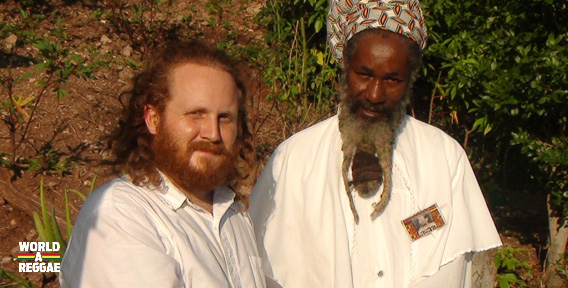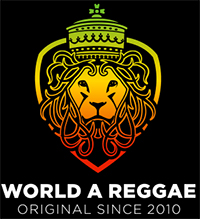During his time playing with his reggae band, Steppin’ Razor, Penn State University graduate Benjamin Bean and his band have been asked why they, a group of white musicians, are playing black people’s music? He got inspired to do his thesis research because of this wide variety of reactions. Most responses were positive, but even the usual, “You all sound great! I could hardly believe it when I saw you were white!” implies an expectation that white people cannot play reggae as authentically or as well as black people.
Ben, or “B. Hold” as his bandmates and fans call him, decided to go to Jamaica, the birthplace of the Rastafari movement and reggae music, to get a few answers to his questions. He wanted to understand why music, for some people, is so closely linked to nationality or skin color. Or why a particular group might claim ownership of a genre. But what he found in Jamaica was much more profound: the power of music to bring people together, to promote Love and Righteousness and to empower the Soul in its constant struggle against Evil and Oppression. And, even though Rasta preaches against racism and color discrimination, he wondered, is it still difficult to see people who resemble the historical downpressor performing a genre of music that represents the experiences of the downpressed?
In his thesis, there is much discussion of such ideological conflicts within the Rastafari movement: memory of oppression vs. a desire to eliminate prejudice; belief in black supremacy (because God is a black man) vs. an insistence upon the equality of all mankind; ownership of reggae and Nyahbinghi music (“it belongs to us”) vs. the universality of music (“music transcends all boundaries”). As he briefly discusses in the “Forward” of his thesis, these apparent contradictions are part of a collective effort to work out a group identity. “Religion and culture are always in constant evolution,” he says, “but we can witness rapid, dynamic changes in Rastafari, a group which is still only 80 years old, yet has come such a long way since its initial militant rejection of the white man.”
Ben hopes to do more research like this in the future, possibly focusing more on the musical side of things. For example, he is curious about the differences in how the Nyahbinghi “one-two” rhythm is played. While the Nyahbinghi Order typically plays it more similarly to a heartbeat tempo, the Boboshanti play it slower, leaving more space for improvisation on the ‘kete’, or ‘repeater’ drum. The bass drum is played differently, as well. He would like to explore not only how this affects the way certain chanted melodies are created, but also what theological implications do these differences have? Many Rastafari spoke to him about the vibrations of the drums making an impact on the physical world; so would some also say that variations in tempo and style have different levels of effectiveness in sending out positive energies to the world?
Our Songs Of Patience is a breathtaking, musical voyage in the world of Rastafari, Nyahbinghi and Black Culture, captured in a 32-minute documentary. We advise you to take some time for it, sit back, relax, and watch it closely. Since the documentary was created for educational purposes with certain restrictions on distribution, we did not embed it on our site (yet) but we will provide you with a direct link to the documentary and more information about it.






Nice! One Love, One World, One people…
Do Good, and Bless all…
Compliments…
Very impressive, excellent work!
Nuff love!
[…] Ben Bean: He’s a fellow Penn State alum who plays in a Reggae band, just mastered the GRE and is pursuing […]